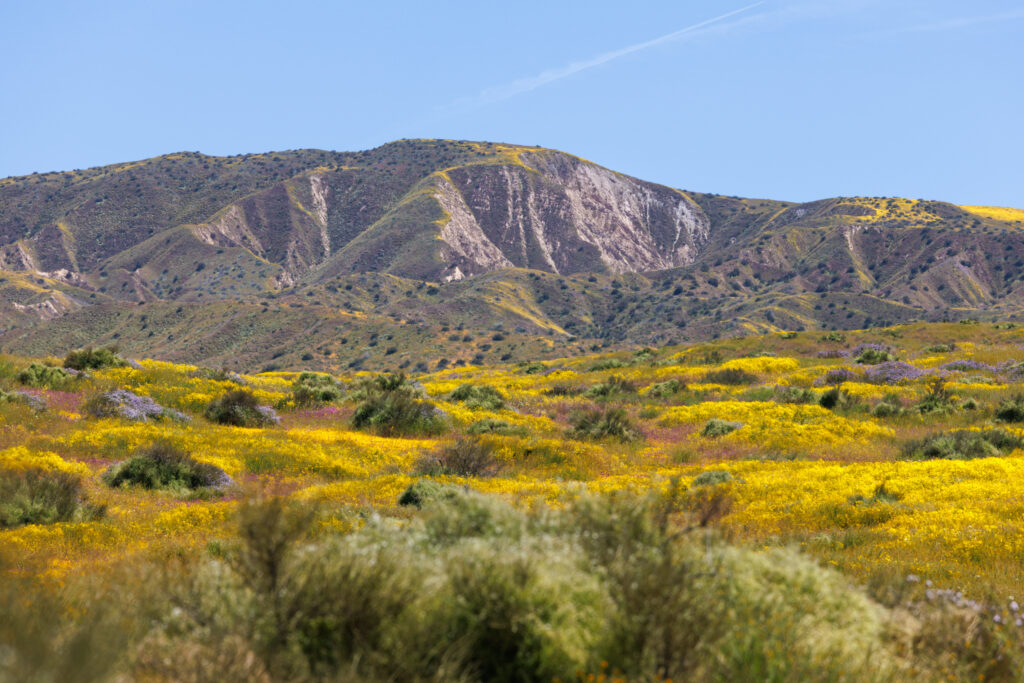Fall is a busy season for many elected officials as they return to their districts to connect with constituents and share their work from the Capital. We want to highlight some key legislation we’ve been tracking and our efforts to support or oppose various bills.
As some of you may recall, last year we supported Representative Carbajal’s introduction of the H.R. 2545 Central Coast Heritage Protection Act, which aims to designate around 250,000 acres of public land in the Los Padres National Forest and Carrizo Plain National Monument as wilderness. This designation provides the highest level of federal protection, prohibiting future oil and gas drilling. While the bill has passed the U.S. House of Representatives five times, it has previously stalled in the Senate. However, late last year, the Senate Committee on Energy and Natural Resources advanced Senator Alex Padilla’s public lands package, which includes the Central Coast Heritage Protection Act. Senator Padilla’s legislation would restore and expand protections for over 1 million acres of federal public lands in California. This is the first time the bill has advanced this far, and it now awaits a final vote on the Senate floor!

(Photo by Bryant Baker)
Fix Our Forests Act | Cuts ESA & NEPA Protections
Introduced this summer by Representative Bruce Westerman, H.R.8790 Fix Our Forests Act is drawing considerable attention for its potential to negatively impact environmental laws. This bill seeks to amend key bedrock regulations, including the Endangered Species Act (ESA) and the National Environmental Policy Act (NEPA). The proposed changes would facilitate logging across millions of acres of federal land without scientific reviews or public input. One of the bill’s most controversial aspects is provision Subtitle A Section 106 which encourages logging and other activities in designated fireshed management areas and categorically excludes these activities from detailed NEPA review. Section 106(b) amends the Healthy Forests Restoration Act to expand categorical exclusions (CEs) to projects up to 10,000 or 15 square miles in size (an acreage that the Forest Service has previously testified may have significant impacts). Treatment across this large acreage is likely to have significant impacts on habitats, watersheds, and ecosystems. Additionally, Section 122 would exempt the U.S. Forest Service and Bureau of Land Management from ESA requirements to reinitiate consultations when new evidence suggests that land management plans could harm endangered species. This bill has several concerning provisions, and thankfully we along with several environmental organizations are actively working to prevent it from moving forward.
Policy Riders | The Hidden Drivers of Bipartisan Legislation
Sometimes, bipartisan legislation can include problematic policy riders. A policy rider is a provision added to a larger piece of legislation, often unrelated to the main bill’s purpose. It can be used to introduce new policies or make changes to existing laws, typically because the rider is unpopular and might not pass on its own. Riders can influence the main bill’s content and may include controversial or unrelated measures. They are often used to push through specific agendas or compromises that might not be achievable through separate legislation.
Recently introduced by Senators Joe Manchin (I-WV) and John Barrasso (R-WY), S. 4753 Energy Permitting Reform Act includes several contentious policy riders that could affect conservation efforts and land use. Bad provisions include
- S. 1435 – “A bill to require the Director of the Bureau of Land Management to withdraw a rule of the Bureau of Land Management relating to conservation and landscape health”.
- Section 101 imposes strict timelines for judicial review of all permits and authorizations under the Endangered Species Act with respect to mining, coal, oil and gas, and other destructive resource extraction activities.
- Section 203 would prohibit the Secretary of Interior from requiring oil and gas companies to implement common sense mitigation measures to offset the harmful impacts of their actions on endangered species on state or private lands.
Farm Bill | Forestry Title Loopholes
Lastly, we want to highlight the H.R.8467 Farm Bill, a major piece of legislation passed roughly every five years that significantly impacts farming practices, food production, and agricultural policies. The bill goes through a detailed process of proposal, debate, and approval by Congress before being signed into law by the President. The Farm Bill is divided into chapters known as titles, which can change in focus and content over time. Notably, Title VIII: Forestry addresses forestry management programs administered by the USDA Forest Service and is crucial because many of the current loopholes we face are related to this title.
We along with several other organizations are opposed to Title VIII: Forestry given it expands three existing Categorical Exclusions (CE)– the insect and disease CE, the wildfire resilience CE, and the fuel break CE – to projects up to 10,000 acres in size, up from the existing limit of 3,000 acres. If enacted, this change would result in very limited environmental review and no public input for forest management projects that can cover over 15 square miles, potentially including logging and road building. By its very nature, a project covering or affecting 10,000 acres can, and likely will, have a significant effect on the human environment, especially in the absence of any interdisciplinary NEPA analysis. These provisions in the Farm Bill could accelerate logging and other development activities in forests, including the Los Padres National Forest.
To stay up to date on our work subscribe to our email and check our LPFW Federal Tracker to look at the status of these bills. For those looking to take action, visit our Action Center to contact your representatives or agencies directly and make your voice heard!







Comments are closed.